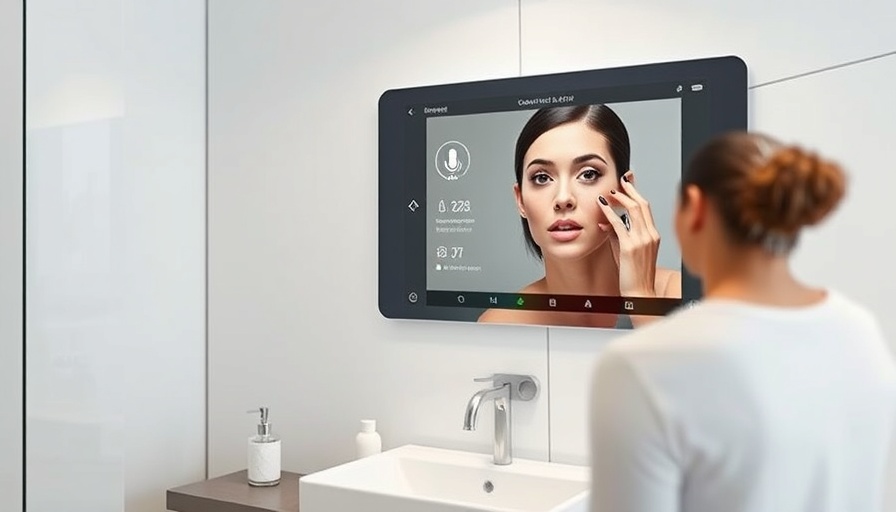
A Revolution in Beauty: ELC's Voice-Activated Makeup App Empowers the Visually Impaired
In a world increasingly driven by technology and inclusivity, The Estée Lauder Companies (ELC) have emerged as pioneers by launching a groundbreaking app— the Voice-Enabled Makeup Assistant (VMA). Recently recognized with the 2025 World 50 Impact Innovation Award, this innovative tool is not just a technological advancement but also a significant step towards establishing a more inclusive beauty industry.
Bridging The Gap in Makeup Accessibility
The VMA is a first-of-its-kind application designed specifically for visually impaired users, allowing them to confidently apply makeup through voice instructions. As Lynda Pak, Interim CIO at ELC, articulately states, "ELC identified a significant gap in the beauty industry—the lack of accessible solutions for visually impaired makeup wearers." This approach emphasizes the importance of co-creation; ELC not only developed the VMA with advanced AI technology but also involved members of the visually impaired community throughout the development process. By doing so, they ensured that the app genuinely meets its users' needs.
The Technology Behind the Transformation
Using voice recognition and augmented reality technologies, the VMA provides real-time audio feedback to users regarding their makeup application. Users can receive assistance on product placement and attain the coveted polished look that many strive for but often find challenging. This app showcases ELC's development efforts, which center around machine learning to refine the user experience continuously.
The Impact of the Voice-Enabled Makeup Assistant
Beyond just being a beauty tool, ELC’s VMA signifies a cultural shift towards inclusivity in the beauty space. The World 50 Impact Awards spotlight organizations that are leading the charge for community excellence and belonging—areas necessary for fostering diversity and understanding. By addressing accessibility in beauty, ELC is redefining industry standards and encouraging other companies to explore similar paths.
Future Predictions: The Possibilities of AI in Beauty
The integration of AI technology in the beauty industry is just beginning to scratch the surface. As consumer demands evolve, so will the technology behind beauty applications. Future advancements could include personalized makeup recommendations based on skin types or even further enhancements in the app's instructional capabilities through machine learning. ELC's successful implementation could inspire competitors to innovate, enhancing accessibility across various other sectors as well.
Empowering Users: A New Experience in Self-Care
For MedSpa owners and managers, the significance of the VMA goes beyond just another app; it is a testament to how technology can improve client experiences. More than an app, it provides empowerment, allowing users to embrace self-care rituals that many take for granted. Imagine many visually impaired individuals brimming with confidence as they apply makeup, equipped with an app that knows their needs and preferences.
A Call for Inclusivity in the Beauty Industry
The successful reception of the VMA is a reminder of the importance of accessibility in all industries, especially in beauty, which immensely influences self-esteem and self-expression. It invites business leaders within the MedSpa community to consider how they can implement practices that advance inclusivity, ensuring everyone has the opportunity to enjoy beauty-related services. How will you use this lesson to adapt and innovate in your practice?
As technology continues to transform the landscape, it is imperative for businesses to take an active role in championing inclusivity. Let ELC’s Voice-Enabled Makeup Assistant serve as an inspiration and a reminder to always consider the diverse needs of your clients.
 Add Row
Add Row  Add
Add 

 Add Element
Add Element  Add Row
Add Row 




Write A Comment